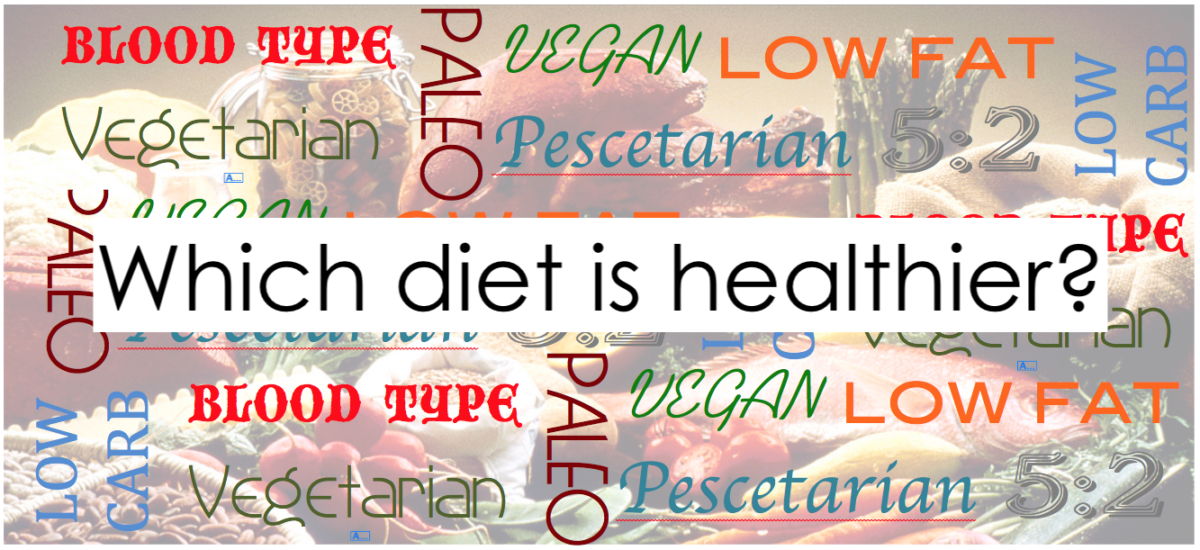Todays post is about which diet is healthier for us.
This weekend I read an article in the paper about the different diets that are getting press lately. This got me thinking. There are so many different opinions and studies regarding diet and health. Many conflict each other and it gets very confusing.
I have looked at few popular diets and found research both for and against.
The Paleo diet
Promoted by several nigh profile chefs and dieticians, this emulates the diet of our hunter-gatherer ancestors. It is based on the premise that they did not suffer from the same diseases as modern humans.
This diet advocates consumption of unprocessed animals and plants, including meat, fish, eggs, vegetables, fruits, nuts and seeds.
It shuns processed foods, sugar, dairy and grains, although some of the more modern “versions” of paleo do allow foods like dairy and rice.
5 human studies have been done on the paleo diet so far. All of these studies are done with humans and are published in respected, peer-reviewed scientific journals.
The results of these studies were positive in regards to health improvements and weight loss.
The Vegan diet
The vegan diet is growing in popularity. Advocates claim that it offers various health benefits, ranging from weight loss and reduced blood sugar to prevention of heart disease, cancer and premature death.
Vegetarian and vegan diets can be healthy, but they can lack certain nutrients. You may have to use a little creativity to ensure you get enough protein, calcium, iron, and vitamin B12.
The problem, however, is that no studies exist of populations where omnivores share similar genetic profiles, similar lifestyle patterns, and similar social and environmental factors with a significant number of vegans.
Therefore, most studies on vegan diets are observational. This makes it difficult to know if the benefits observed are actually caused by the vegan diet itself. Of the 16 human based studies that have been conducted. The results of these were positive in regards to health and weigh loss.
Low carb and Low fat diets
Few things have been debated as much as “carbohydrates vs fat.”
Some believe that increased fat in the diet is a leading cause of all kinds of health problems, especially heart disease.
This is the position maintained by most mainstream health organisations. These organisations generally recommend that people restrict dietary fat to less than 30% of total calories (a low-fat diet).
However… in the past 11 years, an increasing number of studies have been challenging the low-fat dietary approach.
Many health professionals now believe that a low-carb diet (higher in fat and protein) is a much better option to treat obesity and other chronic, Western diseases.
The authority Nutrition site looks at 23 studies that compare the 2 diets.
The majority of studies achieved statistically significant differences in weight loss (always in favour of low-carb).
Keep in mind that all of these studies are randomised controlled trials, the gold standard of science. These studies are scientific evidence, as good as it gets, that low-carb is much more effective than the low-fat diet that is still being recommended all over the world.
The 5:2 diet
Then there is the 5:2 fasting diet, which is actually very simple to explain. For five days a week, you eat normally and don’t have to think about restricting calories.
Then, on the other two days, you reduce your calorie intake to a quarter of your daily needs. This is about 500 calories per day for women, and 600 for men.
There are very few studies that test the 5:2 diet specifically. However, there are plenty of studies on intermittent fasting as a whole, which show impressive health benefits.
I have just put together a small sample of the information found on 2 websites. These sites did not have any articles stating that any of these diets were ‘bad’. However, several of these diets are, at the very least, conflicting with each other, eg; Paleo & Vegan.
It is very easy to find ‘bad’ press regarding any diet. At the end of the day, each of us is different and has different constitutions. Maybe the best way to determine which diet is best for us is to listen to our bodies and take note of how we feel after eating different food groups and go from there.
We have decided some time ago, that the best basis for our diet was to restrict our intake of processed foods. We try to consume mostly whole foods and foods that have had very little processing.
We also choose to restrict our intake of wheat and sugar, as we both find we feel better without it.
Till the next post,
Live clean n Prosper
Source – Healthline – National Library of Medicine –

